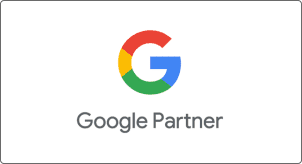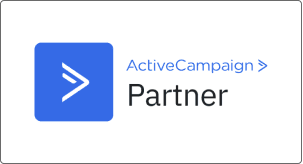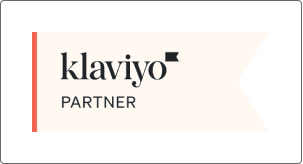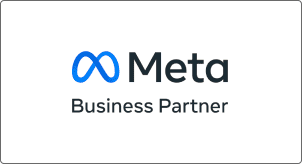We live in a digital age, and your company’s website is the face you show the world. It’s the first thing they see when they look you up, it’s where they find information about you and the products or services you offer, and it’s how you turn interest into business.
It’s crucial, therefore, that your website be the absolute best you can make it, and an essential part of that is security. An insecure website will make prospective clients wary about trusting you with their data and business, as well as exposing you to risks like data breaches and even potential legal consequences.
As one of the most popular content management systems in the world, WordPress offers versatility and ease of use but also presents unique security challenges. In this comprehensive guide, the expert team at 3 Phase Marketing will dive into WordPress security, providing practical tips for identifying and mitigating risks, with an emphasis on proactive measures to keep your website safe and secure.
Understanding the Importance of WordPress Security
Securing your WordPress site is not just about protecting your own data; it’s about safeguarding your visitors’ information and ensuring a trustworthy online presence. Cyber threats are evolving, making websites vulnerable to attacks such as malware, phishing, and brute force attacks.
These threats can compromise your website’s functionality, steal sensitive data, and tarnish your brand’s reputation. Recognizing the importance of WordPress security is the first step in protecting your online investment and maintaining your site’s integrity.
Top WordPress Security Threats and How to Combat Them
Common threats to WordPress sites include SQL injection, cross-site scripting (XSS), and brute force attacks. To combat these, website owners should implement strong password policies, use two-factor authentication, and ensure their WordPress core, themes, and plugins are always up to date.
Additionally, regularly scanning your website for vulnerabilities and employing a web application firewall (WAF) can significantly reduce the risk of security breaches.
For more information on how we can help secure your website, talk to our expert team.
Choosing the Right WordPress Security Plugins for Your Site
Security plugins play a crucial role in fortifying WordPress sites against cyber threats. However, selecting the right plugin can be confusing, given the multitude of options available.
Look for plugins that offer comprehensive security features, such as malware scanning, firewall protection, login security, and post-hack actions.
Your choice of plugin should align with your website’s specific needs, taking into account factors like the size of your site and the nature of the data you handle.
Implementing Best Practices for WordPress Risk Management
Effective risk management involves a combination of technical measures and best practices. Regularly updating your WordPress core, plugins, and themes is critical, as these updates often include security patches.
Employing a reliable backup solution ensures you can restore your site in the event of a cyber attack. Limiting login attempts and changing the default WordPress login URL can also deter hackers. Finally, adopting a least privilege principle, where users are given only the access they need to perform their tasks, can minimize potential vulnerabilities.
Staying Ahead: Monitoring and Updating Your WordPress Security
Cybersecurity is an ongoing process. Continuously monitoring your website for unusual activity and staying informed about the latest cyber threats are key to maintaining security. Implementing a security incident response plan can help you react swiftly and effectively in the event of a breach. Regular security audits and assessments can also identify potential vulnerabilities before they are exploited by attackers.
3 Phase: Your WordPress Wizards
At 3 Phase Marketing, we understand the intricacies of WordPress security. Our expertise in website development and security enables us to offer secure, reliable solutions tailored to your specific needs.
Securing your WordPress site is not just a technical necessity; it’s a critical component of your business strategy. By understanding the importance of WordPress security, implementing best practices, and choosing the right security plugins, you can significantly reduce the risk of cyber threats
If you’re looking to secure your WordPress site and safeguard your online presence, contact us today to find out more about how we can help. Together, we can build a secure, resilient digital foundation for your business.
Frequently Asked Questions
Why is WordPress security crucial for website owners?
WordPress security is essential for website owners because it protects against data breaches, maintains user trust, and ensures the uninterrupted operation of the website. A compromised website can lead to significant financial losses, damage to reputation, and legal consequences.
What are the most common WordPress security threats?
The most common WordPress security threats include SQL injections, where attackers manipulate your database through vulnerabilities; cross-site scripting (XSS), which allows attackers to inject malicious scripts into your webpages; brute force attacks, where hackers attempt to gain access by guessing passwords; and malware, which can spread harmful software through your website. These threats can lead to data theft, unauthorized access, and the distribution of malicious content.
How do WordPress security plugins enhance website safety?
WordPress security plugins enhance website safety by providing a suite of tools designed to prevent unauthorized access, detect vulnerabilities, and mitigate potential threats. These plugins offer features like firewall protection, malware scanning, and brute force attack prevention, alongside regular security audits and monitoring services.
What are the best practices for managing WordPress security risks?
Best practices for managing WordPress security risks include;
- Regularly updating WordPress core, themes, and plugins to their latest versions, which often include security patches for known vulnerabilities
- Implementing strong password policies and two-factor authentication
- Limiting login attempts and changing the default admin login URL can prevent brute force attacks
- Regularly backing up website data to ensure recovery in the event of a security breach
- Employing a security plugin that fits the specific needs of your website is also recommended
How often should you update your WordPress security measures?
You should update your WordPress security measures regularly to respond to new vulnerabilities and threats as they emerge. This includes immediate updates to WordPress core, plugins, and themes whenever new versions are released. Regularly reviewing and updating security settings and plugins at least once a month is advisable. In addition, conducting periodic security audits and assessments can help identify and address any potential security gaps, ensuring your website remains secure against evolving cyber threats.







